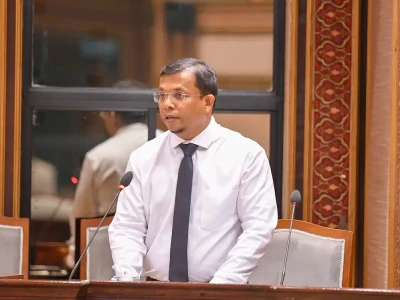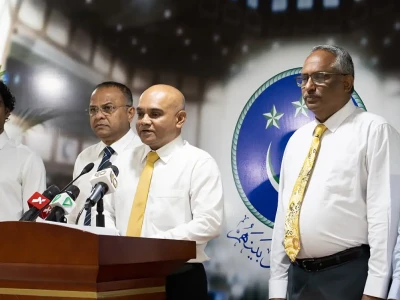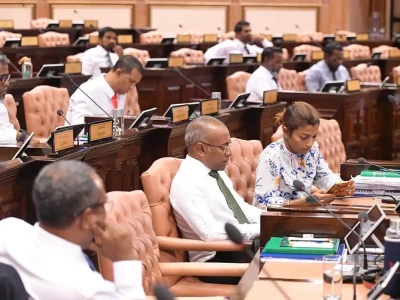
CSC concerned over salary increments in past govt
CSC pointed out that the objective of the work started by the state in the name of pay harmonisation has not been achieved. The gap is wider than before.
Top Stories
-
Ministry to assess repairs at Sinamalé, Malé Hiyaa flats
-
Authorities asked to probe blasphemous insults in TikTok live
-
Fine waiver, MVR 100k allowance for Sinamalé, Malé Hiyaa flats
-
Referendum on merging elections with April 4 council polls
-
Fenaka Saeed transferred to house arrest over health reasons
By
Fathmath Ahmed Shareef
The Civil Service Commission (CSC) on Tuesday expressed concern that the pay harmonisation initiative launched by the previous government to increase the salaries of government employees has not been done properly.
The salary structure of government employees was changed and the salary increase was divided into different sectors in the last government.
Then President Ibrahim Mohamed Solih increased the salaries of teachers and principals in 2022. The salaries of some health workers were also increased last year to coincide with the presidential election.
Speaking at the meeting held to clarify the functioning of the Civil Service Commission, its president Mohamed Nasih said that the first changes in the salaries of government employees were made on February 1, 2019.
Since then, various allowances and wages have been introduced under different names, but very few changes have been made to the salary structures, he said.
Nasih said that since the pay commission started the process of pay equalisation during the previous government, only the salaries of teachers and health workers have been increased so far.
"Since then, this work has not been carried out. Therefore, the objective of the work started by the state in the name of harmonisation has not been achieved. The gap is wider than before," Nasih said.
"It's been two years since teachers' salaries went up and many civil servant’s salary structures have not shifted to harmonisation still”.
Nasih believes that the purpose of the salary increase was not achieved because of the way the then government did it. He said:
-
The Civil Service Commission was not consulted when the salaries were increased
-
He had even asked to participate in the Pay Commission's efforts to change the salary structure
-
But the salary changes were brought on at the last minute and there was very little time to offer any recommendation
-
The recommendations were not included in the most desirable way either
"[When we had the opportunity to submit recommendations for the salary structure], the government had decided that it was going ahead with pay harmonisation on a certain date. So we had to do it in a kind of forced way," Nasih said.
Nasih said the requirements of government employees' posts should be determined by the Civil Service Act. However, when the last government revised the salary structure, the requirements were set by the Pay Commission, he said.
As a result, many problems arose after the implementation of the new salary structure and had to be resolved individually, he said. He said the problems would not have occurred if the salary structure had been revised in consultation with the commission.
He said that although a civil service member was on the Pay Commission when it was first formed, there is no one to represent the commission now.
Vice-President Ibrahim Rasheed also expressed concern over the previous government's efforts to change the pay structure and the absence of a civil service member in the pay commission. He said:
-
90% of the work of the Civil Service Commission is now done by the Pay Commission
-
It confuses the commission’s mandate
-
Although the CSC has the power to change the structure of civil service employees, it is also done by the Pay Commission
-
The biggest reason is that there is no member of the Civil Service Commission in the Pay Commission
-
Many people's complaints and dissatisfaction are directed to the Civil Service Commission, but it is not the work of this commission
“The law clearly states that it is the duty of the Civil Service Commission to create structures and work with the civil servants. But what has happened now is that [the Civil Services Commission] has now actually become a place that issues chits only,' Rasheed said.
Sharing the work being done by the civil service, Nasih said at Tuesday's meeting that amendments to some of the civil service laws have been sent to the Attorney General's Office.




